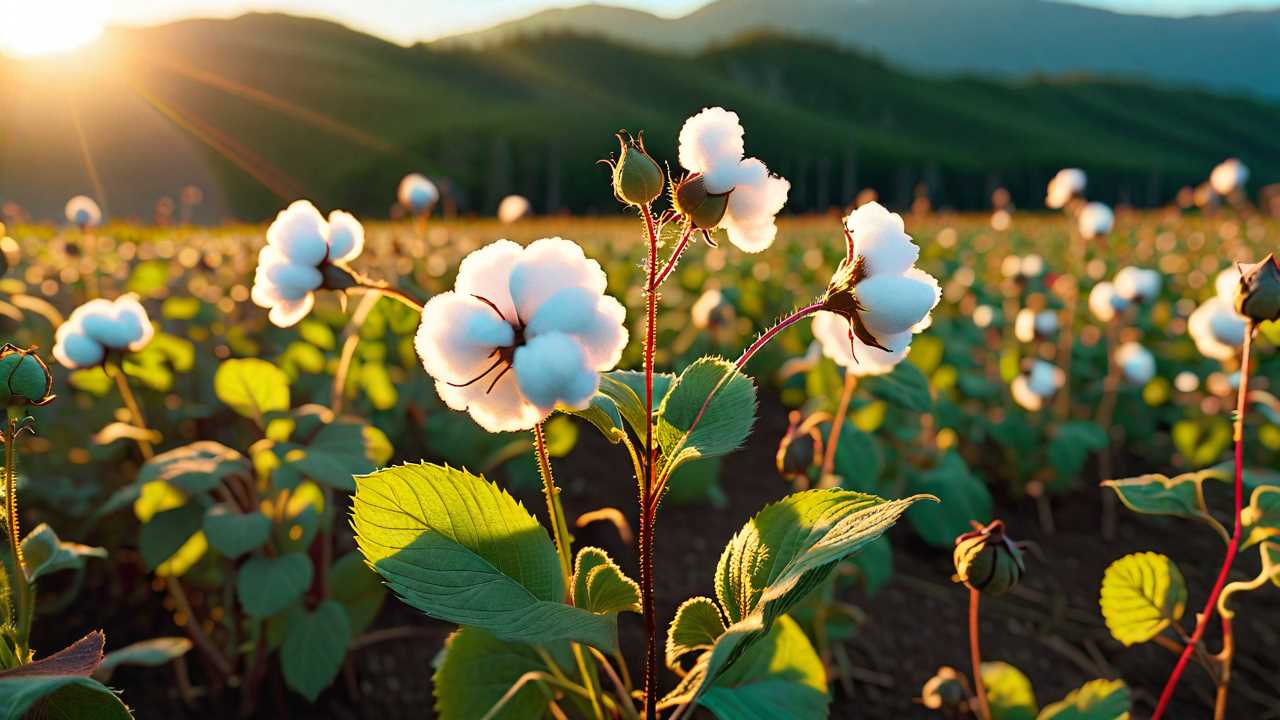
You might not be aware that organic cotton and regular cotton have significant differences in their production methods and impact on the environment. Have you ever wondered why choosing organic cotton over conventional cotton matters beyond the label? The distinct practices involved in cultivating organic cotton lead to various benefits that go beyond the fabric itself. Organic cotton's journey from seed to garment involves mindful choices that set it apart from its traditional counterpart.
Environmental Impact
When comparing organic cotton to regular cotton, the environmental impact is a critical aspect to take into account. Organic cotton is cultivated without the use of synthetic pesticides, herbicides, or genetically modified organisms. This leads to reduced soil and water contamination, promoting healthier ecosystems.
On the other hand, conventional cotton farming heavily relies on chemical pesticides and fertilizers, contributing to water pollution, soil degradation, and harm to surrounding wildlife.
Furthermore, organic cotton farming practices often incorporate techniques such as crop rotation and composting to maintain soil fertility naturally. This contrasts with conventional cotton farming, which frequently involves monocropping, leading to soil erosion and decreased soil quality over time.
Additionally, organic cotton production generally consumes less water compared to regular cotton, as synthetic fertilizers used in conventional farming require more irrigation.
Farming Practices
Considering farming practices in the cultivation of organic cotton versus regular cotton reveals significant differences in the methods employed and their impact on the environment. Organic cotton farming prioritizes sustainability and environmental stewardship, utilizing practices that minimize harm and promote soil health. In contrast, conventional cotton farming relies heavily on synthetic inputs and chemical pesticides, which can have detrimental effects on ecosystems.
Here are the key differences in farming practices between organic and regular cotton:
- Crop Rotation: Organic cotton farms often practice crop rotation, alternating cotton with other crops to improve soil fertility and reduce pests naturally.
- Weed Control: Organic cotton farmers use manual weed removal and natural weed suppressants, while conventional cotton farms rely on herbicides.
- Pest Management: Organic cotton growers utilize beneficial insects and trap crops to control pests, while conventional methods involve chemical pesticides.
- Irrigation: Organic cotton farming tends to prioritize water conservation through methods like drip irrigation, whereas regular cotton farming may use more water-intensive techniques.
Understanding these fundamental differences sheds light on the contrasting approaches to farming practices in organic versus regular cotton cultivation.
Chemical Usage
Organic cotton farming significantly reduces chemical usage compared to conventional cotton cultivation, highlighting a key distinction in their environmental impact.
In organic cotton farming, synthetic pesticides and fertilizers are prohibited. Instead, farmers rely on natural methods like crop rotation, composting, and biological pest control to maintain soil fertility and manage pests. This approach minimizes the release of harmful chemicals into the environment, promoting soil health and biodiversity.
Conversely, conventional cotton cultivation involves heavy chemical usage. Synthetic pesticides and fertilizers are commonly used to boost crop yields and prevent pest infestations. These chemicals can have detrimental effects on soil quality, water systems, and biodiversity.
Runoff from fields treated with synthetic chemicals can contaminate water sources and harm aquatic ecosystems. Additionally, pesticide residues can persist in the cotton fibers, potentially affecting consumer health.
Quality and Benefits
To assess the quality and benefits of organic and regular cotton, a thorough examination of key characteristics that differentiate the two types of cotton cultivation is essential.
When comparing organic and regular cotton, the following aspects highlight the quality and benefits of organic cotton:
- Purity: Organic cotton is grown without the use of synthetic pesticides or fertilizers, resulting in a purer end product free from harmful chemicals.
- Environmental Impact: Organic cotton cultivation promotes biodiversity, reduces water consumption, and helps maintain soil fertility, making it a more sustainable option compared to conventional cotton.
- Health Benefits: The absence of chemical residues in organic cotton makes it hypoallergenic and safer for individuals with sensitive skin or allergies.
- Longevity: Organic cotton fibers are typically stronger and more durable than regular cotton, leading to products that are of higher quality and have a longer lifespan.
Frequently Asked Questions
Is Organic Cotton More Expensive Than Regular Cotton?
Organic cotton tends to be pricier than regular cotton due to its sustainable farming practices. This cost reflects the additional care, attention, and certifications required in the organic cotton production process, promoting eco-friendly and ethical standards.
Can Organic Cotton Be Used for All Types of Clothing?
Yes, organic cotton can be used for all types of clothing. It offers the same versatility as regular cotton but with the added benefit of being grown without synthetic chemicals, making it a sustainable choice.
Are There Specific Certifications for Organic Cotton?
Yes, specific certifications exist for organic cotton. These certifications guarantee that the cotton is grown without harmful chemicals or synthetic pesticides. Look for labels like GOTS (Global Organic Textile Standard) or OCS (Organic Content Standard) for verification.
Does Organic Cotton Require Special Care During Washing?
When washing organic cotton, use gentle detergents to maintain its natural properties. Avoid harsh chemicals that can break down fibers. Wash in cold water and air dry to preserve colors and prevent shrinking.
Is Organic Cotton More Sustainable in the Long Run?
In the long run, organic cotton proves more sustainable due to its reduced environmental impact from cultivation to production. Choosing organic supports healthier ecosystems and fair labor practices, making it a conscious consumer choice.
 SportsHollywoodLifestyleFashionHome & GardenTrendsPrivacy PolicyTerms And Conditions
SportsHollywoodLifestyleFashionHome & GardenTrendsPrivacy PolicyTerms And Conditions
